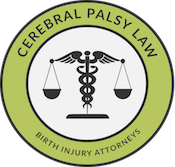Settlements & Verdicts: Failure to Prevent Early Labor
When babies are born prematurely, they are at a much greater risk for developing a range of complications, injuries, and infections than full-term babies. Because their organs and systems are underdeveloped, preterm babies are not yet suited for the insults of delivery and life outside the womb. Because preterm labor and delivery is so dangerous, medical professionals are obligated to carefully prevent early labor by any means necessary within the standard of care.
At Michigan Cerebral Palsy Attorneys, our birth injury lawyers have years of specific experience and knowledge surrounding preterm delivery cases. When a premature birth could have been avoided and the mother and/or baby is injured, it is medical malpractice. In this section, you’ll read about a few of our past settlements and verdicts surrounding cases in which medical malpractice resulted in premature delivery with subsequent birth injuries. We encourage you to reach out to our cerebral palsy lawyers if you have any questions or case inquiries—legal experts from Michigan Cerebral Palsy Attorneys are available by phone toll-free at (888) 592-1857 or through this online contact form.
1. Twins Win $3.5 Million
Failure to Prevent Early Labor and Diagnose Maternal Complications Leads to Cerebral Palsy and Cognitive Impairments
The mother of twins began spotting at 27 weeks of pregnancy, so she went to the hospital for medical help. After exhibiting no signs of contractions, she was sent home. In three days, the mother went into labor and delivered twins due to placental abruption and chronic maternal vessel disease. Our Michigan cerebral palsy lawyers found that the medical professionals were obligated to diagnose and treat these complications during one of her two earlier visits. Failure to do so resulted in cerebral palsy and cognitive impairments in the twins.
2. Child Wins $3.5 Million
Failure to Prevent Preterm Delivery and Avoid Vaginal Delivery of a Breech Baby Leads to Neonatal Brain Damage, Cerebral Palsy, Learning Disabilities and I/DD
This case involved a mother at risk for preterm birth. First, the mother was not given necessary progesterone injections during prenatal care visits. At 26 weeks of gestation, the mother presented to the hospital on the day she was scheduled to have a cervical length ultrasound. Based on her high risk pregnancy and history of preterm delivery, she should have been immediately given tocolytics and steroids, but neither were given for two hours after her arrival. An ultrasound indicated the baby was in breech presentation, and the mother signed consent forms for a C-section. However, the baby was delivered vaginally in breech presentation over an hour later. Placental pathology indicated acute chorioamnionitis, and the baby experienced severe intracranial hemorrhages. These traumatic birth injuries caused hydrocephalus and white matter brain damage. The baby now suffers from permanent brain damage, cerebral palsy, developmental delays, intellectual disabilities and learning disabilities.
3. Twins Win $2.25 Million
Failure to Stop Preterm Labor Leads to a Delayed Emergency C-Section and Hypoxic Ischemic Encephalopathy (HIE) with Resultant Cerebral Palsy and Developmental Delays
In this case, a mother of twins at risk for preterm labor visited the emergency room on two occasions during her final trimester. The mother was sent home on the first visit but was admitted for fetal monitoring on the second. Problematic fetal heart tracings necessitated an emergency C-section delivery—it is the standard of care to perform an emergency C-section within 30 minutes of ordering it, but medical professionals waited an hour and forty minutes to begin the operation. During this time, the twins experiences hypoxic ischemic encephalopathy (HIE) with resultant brain damage, cerebral palsy, and developmental delays.
4. Twins Win $2.1
Failure to Prevent Early Labor Results in Cognitive Impairments and Cerebral Palsy
In this case, a mother went into premature labor with twins. Medical professionals administered magnesium sulfate in order to prevent early labor and steroids to hasten fetal lung development. The mother was sent home, but came back to the hospital after experiencing a fall at home. Medical professionals examined the mother and failed to find any medical issues, but the mother came back to the hospital fully dilated and in labor a couple hours later. Ultimately, the failure to prevent early labor resulted in cognitive impairments and cerebral palsy in the twins.
